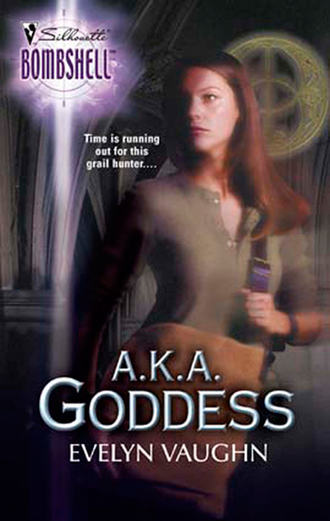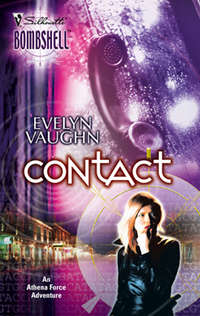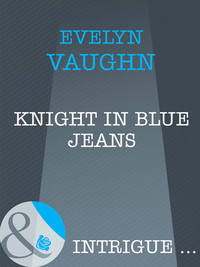
Полная версия
A.k.a. Goddess
I said, “So marry one of the stockholders.”
His eyes narrowed. “I was just worried about an old friend, Magdalene. Don’t flatter yourself that there’s more. Marriage hasn’t been on the table for some time.”
I forced myself to say, “Good.”
That brought him up short. It hadn’t been my intention, whether he deserved it or not. And I still didn’t know, couldn’t possibly guess if he really deserved it.
That’s the part that really sucked. Not knowing. And he’d fixed things so I would never know.
“Oh, Lex, I didn’t mean it that way.” I crossed to his side, torn. An enemy I could fight. An ally I could love. But what could I do with him? “What I meant was, you deserve to be happy, and it clearly isn’t happening with me. I just wish—”
But he shut me up by kissing me.
I should probably have fought him off. Slapped his face, kneed him where it hurt, bit his searching tongue. I had my ways. That would teach him to be so damned proprietary.
But I’d missed him, and tonight I needed that kiss far, far too badly to risk any of it.
Lex….
We fit, somehow. Always have. He was my first date, my first kiss, my first time, my first love. He was also my first heartbreak, and second, and third, with a truckload of regret thrown in… And yet his arms gathering me to him felt right on a deeper level than good sense could counter. Such incredible power. Such unfathomable depths.
Such a really great body. The boy was ripped.
When I dug my fingers into his thick, ginger-brown hair and chewed playfully at his lip, he turned to wedge me against the door, never breaking the kiss. His body felt hard and necessary against mine. Alive. Real. Lex. My soul knew the taste of him, the feel of him, the scent of his breath. Our heartbeats, pressed chest to breast, seemed to fall into almost instant unison. I opened my mouth to him, slid one knee up over his hip, arched into the brace of his arms, my blood singing.
The telephone rang again, startling me back. “Crap.”
Lex steadied himself with the heel of his hand, a solid thunk against the door, but otherwise regained quick control. “Don’t worry,” he said thickly, licking his lips and swallowing heavily. “I’m well aware this was just a momentary lapse.”
That didn’t make the reality of it any easier to bear.
“You don’t have to work for your family,” I pleaded. But I took a step toward the ringing phone as I said it. Talk about your divided loyalties! “No matter what they expect. The money can’t be that good….”
He stared at me. Then, surprisingly, he laughed—if a little harshly—and ducked forward to kiss my cheek. “Someday you’ll realize just how painfully naive you are, Mag. I hope to God I’m there when it happens.”
Oh? “So that you can come to my rescue?” I asked. “Or so that you can say you told me so?”
His eyes crinkled, just a bit—and he let himself out. “Lock up,” he called over his shoulder.
The phone screamed yet again as the door shut behind him, then rolled over to the machine. I snatched the handset up, interrupting my own recorded voice. “Yes!”
“So sorry,” said Lil, her British accent adding to her sarcastic edge. “Is the need to save the world for womankind getting in the way of your date with Satan?”
“Don’t call him that.” Maybe I should be beyond defending him. I’m not. “We don’t know anything for sure.”
Lil’s voice gentled. “We know enough, Maggi.”
And she was right. In the end, it no longer mattered what I felt for Lex Stuart or what he felt for me.
I was still one of an ancient line of women charged with the protection of sacred, secret chalices. Chalices that could, if legend was to be believed, heal the world—male and female. Holy Grails, every one of them.
And Lex came from a family rumored to be bent on destroying them.
It’s my first week in kindergarten. I already hate Alex Stuart. He thinks he’s better than all the other kids.
When he won’t let Freddy Morgan use the yellow paint, Freddy cries. Freddy’s a wimp, but it makes me mad anyway.
“You’re suppose to share,” I tell Alex.
He looks surprised. “Only losers share.”
At five, I’m pretty simple. “Give Freddy your paint. He needs to make his sun yellow.”
Alex says, “You can’t tell me what to do. You’re just a girl.”
So I hit him, right across the face. After a moment of clear surprise, he hits me back. The class gasps—hasn’t he heard that boys aren’t supposed to hit girls?
My cheek hurts, but I’m glad. I want to win fair. I shove him to the ground, and then we’re rolling across butcher paper and through fingerpaints, pummeling uselessly at each other—and laughing. It’s fun! We’re purple and green and very, very yellow. But we’re still hitting each other between grins.
Then our teacher pulls us apart. Alex’s dad uses the incident as an excuse to send Alex to private school.
I don’t see him again for seven years.
Chapter 2
“L isten,” Lil said. “This is bigger than your twisted love/hate thing with Lex Stuart. Aunt Bridge is in the hospital.”
“What?” Our great-aunt Brigitte was a historical sociologist in Paris. Even more than our mothers and our late grandmother, Aunt Bridge had convinced Lil and me of the truth in the Grail Keeper legends. “Is it her heart?”
“No, she was attacked in her office. Someone beat her pretty badly.”
My mouth opened, but no sound came out. I wanted to sit, but most of my furniture was gutted or broken. So I sank back against the wall and slid down it, my gym shorts riding up, until I sat on the carpet, picturing Bridge’s face. She was in her eighties! What kind of sick person would hurt an old woman?
“This is connected to her work, isn’t it?”
“She isn’t conscious yet, but the Paris police say that her laptop’s gone, and some of her papers. You’ve been working with her, Mag. What was she writing about this time?”
“She’s calling it The Faerie Goddess in Early Gaul.”
“The fairy Melusine?” Lil and I had grown up on that story. Just imagine The Little Mermaid with bat wings and a traitorous husband.
“If she’s right, the goddess Melusine.” But I was staring at the destruction around me with increased concern. “Uh, Lil? Don’t freak, but someone just broke into my place, too.”
“What?” Even without the phone, I might’ve heard Lil’s shout all the way from England. “Are you all right?”
“Yes, but I haven’t looked at my files yet. The computer was on, and I always turn it off when I leave.”
Lil said, “You’d better check, Mag.”
I did. But I took Lex’s advice and locked the door first.
Sure enough, my latest backups were missing.
“I’ve got to go to my office,” I said, grim, when I picked up the phone. “On campus.”
“Why not just call security?”
“And say what? My aunt at the Sorbonne was robbed, so I’m worried about Connecticut? We’re between semesters. They only have a skeleton staff. I’ll go myself. Then I’ll go to Paris.”
“Be careful, Maggi,” Lil pleaded. “I hate when you do this stuff alone.”
But, picking up the business card Officer Sofie Douglas had left on my desk, I suspected I might not have to.
Beside her home number she’d doodled a simple O.
Secret societies are a bitch.
It doesn’t help that the scattering of women called Grail Keepers aren’t organized enough to actually be an organization. Most still don’t even know there are others out there. We have few written records, no official roll of members, no regular meetings and no inner sanctum.
That’s by design.
Our information comes from word-of-mouth, mother to child; from truths hidden in superstitions, fairy stories and nursery rhymes. It’s only been in the last few years that Lil and I, spurred on by our grand-mère’s dying wish, started using the Internet to find and coordinate some of the diverse women who make up our roster.
Or who would, if we kept a roster, which we don’t.
Even before that, though, Grail Keepers had an ancient technique for recognizing each other. It’s similar to how early Christians used to self-identify, back when their beliefs could get them fed to the lions—one person would draw an arch in the dust, and the other would draw an intersecting arch, and the result would be that simple fish design you now see on the back ends of cars. Scuff out the design, and nobody but those two people would be the wiser.
We do something similar with circles.
One woman draws a circle. The other draws an intersecting circle, and voilà—you have an ancient design, like a sloppy number eight, that represents the overlapping of worlds. Not that we knew this as children. Back then, it was just a rhyme game our mommies taught us: “Circle to circle, never an end, cup and cauldron, ever a friend.”
Now that I’m all grown up and educated, I know the symbol is called a vesica piscis or a “chalice-well” design, after the famous version at the well at Glastonbury Abbey. Like on wedding-ring quilt patterns. Like on my pendant.
Hence my interest in Officer Sofie’s card.
Jogging to my blue Mini for the second time that night, I wished I’d had time to draw the second circle on Sofie Douglas’s card and hand it back to her. That would’ve been subtler, safer. I didn’t. So I phoned her on my hands-free mobile as I sped down the highway and simply said, “This is Maggi. From tonight?”
“I remember.” She sounded carefully noncommittal. It being after midnight, I couldn’t blame her.
“I found your card and, well…” Talk about feeling awkward. “Circle to circle?”
For a moment I feared my connection had cut out. Then—
“Never an end,” she whispered, surprised. Not that I blamed her. The first time’s like learning the Tooth Fairy’s real.
“I thought you should know I’m heading to Turbeville Hall on campus, and that there might be trouble.”
When I arrived she had already parked outside the four-story building that houses the academic offices. I felt a twinge of concern when I saw the unfamiliar car, but then she got out, still wearing her uniform. And her hip holster. Carrying a monster flashlight.
I liked this woman.
As I got out of the car, she shone her light onto the asphalt at my feet. Her voice shook slightly against a background of crickets and a jet flying overhead. “‘Circle to circle, never an end?’”
Relieved, I switched on my own flashlight and slid the pool of light partially across hers, stopping when they overlapped halfway. “‘Cup to cauldron, ever a friend.’”
Vesica piscis. Drawn in light on the pavement. Our version of a secret handshake.
“I can’t believe this really works.” Sofie shook her head. “I thought it was just a fairy tale my grammy made up.”
I shifted my keychain so keys stuck out between my fingers, just in case, and strode toward the building’s front door. Final exams had ended last week, and we’d turned in grades yesterday. The place looked dead, so I assumed it would be locked. “Follow me, and I’ll explain what I know.”
She quickly caught up. “Why?”
Why explain, or why follow?
“Because knowledge is power,” I said. “The kind of power that just increases when you share it. And because someone I know was attacked in her college office this week.”
“Good…” Her voice fell softer as the door swung open into the empty lobby.
I hadn’t used my key yet.
“…reason,” she finished grimly. “I should call this in.”
“I need to check on something first.” My whisper echoed.
Sofie said, “Just keep talking, Maggi Sanger.”
So I did, heading for the stairs instead of the elevator. “Your grammy told you a story about the Great Queen, right?”
Lil and I hadn’t met a Grail Keeper yet who hadn’t heard some version of that story.
“The one with seven daughters?” she asked.
“Sometimes it’s nine.” I sprinted up the stairs. “I’ve heard it with as few as three and as many as thirteen. But the queen always sends her daughters off into the world, and she always gives each one the same gift.”
“Her own magic cup,” Sofie finished, pacing me. “The older I got, the more lame a going-away present that seemed.”
“Yeah, well, that’s allegory for you.” Both Sofie and I were in good shape; our breathing stayed regular. “Did you read in the paper last week about an ancient goblet that was destroyed in the National Museum of New Delhi, India?”
“Nope.”
“It wasn’t a big news item, so it would be easy to miss—”
She stopped, right there in the stairwell. “A goblet?”
“The Kali Cup,” I said, breathing just a bit harder. “Or chalice or grail. Scholars believed this cup was used in ancient ceremonies worshipping the goddess Kali. But it was destroyed—smashed—before it could go on display.”
I’d felt actual pain, deep in my gut, when I read that.
“And you think that was a magic chalice sent out with some great queen’s daughter?” Sofie blinked. “Reality check. That’s just a fairy tale.”
“I used to think that, too. But if you had to pass along information in a way that would seem harmless to the people in power, what better form than fairy tales and nursery rhymes?”
She started climbing again, absorbing it all. “You’re saying the Great Queen story was true.”
I said, “All I know for sure is that since my cousin and I started looking, we’ve found a lot of women who were raised the way you and I were—‘circle to circle.’ With the Kali Cup gone, we’re starting to wonder if some people weren’t raised to hate or fear those chalices.”
“Why?” she asked. “Unless they’re really magic, I mean. History can’t hurt anybody.”
I held up a cautious hand as we emerged onto the third floor. Emergency lights cast the long hallway into shadows, brightened only by the red eye of an exit sign.
I whispered, “Tell that to my great-aunt Brigitte.”
We made our way down the dark hallway, past the occasional row of plastic chairs. My office stood at the far end, so we got to pass all the other doors—all the possible hiding places. None of the doors had a window, even a peephole.
Taking a deep breath to slow my pulse, I slipped my key into the lock and turned it.
Sofie caught my hand. “Let me.”
Since she was the one with the gun, I nodded. I stepped back while she pressed a shoulder against the doorjamb, crooked her arm so that her pistol pointed toward the acoustic ceiling tiles, slowly turned the knob—
And burst into the office in one abrupt, practiced move. “Police!”
Her shout bounced back down the hallway. Nothing.
I peeked around the jamb, relieved. It was just my office, darker than usual and straightened up for the summer break.
No books strewn across the floor. No computer monitor lying on its face. No mysterious bad guy lurking in the darkness.
With a last look around the office, Sofie holstered her weapon. “That plays better when there’s a perp waiting.”
I went in, turning on the light. “Better you than me. I never much liked guns. Weapons are too patriarchal.”
She grunted, stepped inside, and examined my décor—a framed illumination of Chaucer’s Wife of Bath from Canterbury Tales; stone fleur-de-lis over the window; an imitation suit of armor in the corner with a mortarboard balanced on his tin head.
Above the inside of the door hung a slim, sheathed sword, not quite Asian enough to clash with the rest of the office.
Sofie looked meaningfully back at me.
I shrugged. “Well, we do live in a patriarchy now.”
I reached for the power button on my CPU, to check my files—then abruptly stopped, opening my hand to splay it across the computer case.
Wait a minute.
Warmth tickled my palm. “Someone’s been here.”
“What?” Even as she asked it, Sofie’s head came up and she was on guard again, glancing more closely at the filing cabinets, the bookshelves, the knight.
Anything that might hide an intruder.
“It’s warm.” I straightened, leaving the computer alone. “Someone was just here.”
I switched off the lights and went to the window. My office overlooked the campus quadrangle, not the parking lot. Still, the walkways were wide enough that service vehicles could use them for maintenance.
And sure enough—
“Son of a bitch,” I whispered, staring down at the dark car that waited smugly, not fifty feet from the building.
In a moment Sofie stood beside me. “Plymouth. Current model. Looks empty. I can’t see the license from this high up.”
“Then we need to get back down.” Now. A few minutes ago.
“Let me go first,” she said, heading for the door.
She stopped when I opened the window and said, “No.”
My office was too far from the stairway. It made sense to hurry. What if the car left before we made it down?
Leaning out, I had to really stretch, balancing on my stomach across the sill to reach the drainpipe I knew was there. Good thing I’d stretched out by swimming laps tonight.
“Are you crazy?” demanded Sofie.
I’d seen students climb this pipe more than once, despite regulations and safety concerns. I knew it would hold my weight. Probably. Then again, here I was grasping a copper drainpipe as I eased my knees out a window into sheer air, three stories up. So was I crazy?
Who knows? I’ve been wrong before.
I centered and balanced in order to slowly raise myself, then precariously stand on the windowsill. I touched the top of the sash for balance, then slowly shifted my center of gravity across to the drainpipe, my chest brushing ivy-laced brick. Just before the step of no return, I remembered that I was wearing sandals. I caught the heel strap of each on the inside of the windowsill to pull them off, one at a time.
One fell into the office. The other slid out the window, spinning in freefall down into the hedge at the base of the building, three floors below me.
Yeah. Gulp.
Not that I could’ve gotten back in if I’d wanted to. By now, gravity had pretty much committed me. Tightening my hold on the pipe, I swung my feet and knees across to straddle it. My toe caught on an edge of ivy. Stone bit into my soles. For a brief moment I simply clung there, deepening my breathing.
I’m in pretty good shape, but there’s a reason chin-ups measure men’s strength better than women’s.
Aunt Bridge, I thought firmly, breathing strength into my arms as I glanced down at the mysterious car. Sons of bitches.
Holding the pipe with my knees, I let go with one hand to reach down. I slid some—mostly controlled—then reached down with the other hand. The copper pipe felt cool and coarse under my palms as I descended, hand under hand. My arms vibrated with the strain, and my knees dragged against brick and ivy. I looked up and saw my window empty; Sofie had vanished. I looked down and couldn’t see where my sandal had landed.
Within ten feet of the ground I thought, Close enough. I probably could have slid—like a fireman’s pole but with ridges. Instead I pushed away in a leap and landed in a low, shock-absorbing crouch.
My bare feet safe on manicured grass, I straightened and spun for a better look at the dark car’s license plate. X1—
Then something hard pressed against the base of my skull—something like a gun—and my priorities shifted accordingly.
Chapter 3
“T hat’s better,” murmured a deep, muffled voice.
Not from my side, it wasn’t. I don’t like guns.
For a moment I couldn’t breathe. Not good.
“Fairy tales aren’t real, lady,” the man said in a smooth baritone. “And little girls break very easily.”
Breathe, damn it! You’d think, after training for years in Tai Chi, I wouldn’t clutch like this. Admittedly, some see Tai Chi as the Hello Kitty of martial arts, but you’d be surprised at its uses on the expert level. Unfortunately, Tai Chi requires a little thing called breath.
Then the man said, “That’s a good girl.”
I snorted with disbelief—which got me breathing.
Which made me dangerous.
I didn’t just have my balance—I owned it. I dropped my center of gravity. I spun, raising a hand, readying to redirect baritone’s gun into a safe direction as I took it, and—
“Police! Freeze!”
Damn. Sofie’s command surprised both of us. Worse, she stood where I’d planned to divert the gun. Using her distraction, I rerouted my movement into a full turn, stepping free from baritone and out of Sofie’s line of fire.
My new friend stood, dark and deadly, pistol pointed.
More guns. Goody. But I got a look at my attacker—tall, broad-shouldered, nice suit. Very nice suit. I should know, what with the company I’ve kept.
Interesting choice for breaking and entering.
It didn’t go with his black ski mask at all.
“Ladies,” warned baritone, glancing between Sofie and me, “You do not want to go there.”
Sofie said, “Put down the weapon and back away.”
Apparently not one to take orders, he swung his gun toward her. But I stepped smoothly back into Sofie’s line of fire and slipped his legs out from under him as he shot.
Four ounces of strength against a ton of force, as my sifu says. Appear, then disappear. You just have to sense your opponent’s weakness and know where to tap.
Baritone landed on the concrete with a surprised grunt and his shot—to judge by a crash of breaking window glass—went wild. Sofie lunged forward, shoving her pistol into his face. “Drop the damn gun!”
His fingers opened. His pistol clunked to the concrete.
Then I heard the sound of an engine, behind us.
“Down!” With a leap and a twist, I tackled Sofie to the walkway and rolled us behind a bench. More windows in Turbeville Hall exploded in a barrage of thorough gunfire.
The Plymouth hadn’t been empty after all.
“Damn!” Sofie yelled over the chaos, while baritone snatched his gun and ran. Maybe she could still have risked shooting him—if she wanted to shoot him in the back. He wasn’t our immediate threat anymore. Instead, she fired at the car once, twice, again.
The Plymouth’s passenger door opened, baritone leaped in, and it peeled down the service walkway. The last of the gunfire came from us.
“Damn!” Sofie repeated into the otherworldly silence that followed. We both sat up slowly, blinking against the heavy haze of gunsmoke. Nearby, from the hall, an afterthought of glass crashed from a broken window onto the ground. “If you’d gotten his gun, we could’ve printed it.”
That had been my idea, before she showed up with her admittedly expert grasp of the patriarchal value of weapons. I said, “X146.”
Sofie stared, then grinned. “You got the license?”
“The first four characters, anyway.”
“You go, girl!” She removed her radio from her belt, but I touched her wrist. “Don’t even think it,” she warned.
“I know you’ve got to call it in, and I know I’ve got to stay here for the report,” I assured her. “But do me a favor. Don’t mention my name on the emergency band.”
“Because…?”
“Because I know someone who might be monitoring it. Or has other people doing the monitoring for him. I don’t want to see him a second time tonight.”
Her dark eyes whitened. “Lex Stuart?”
That was no psychic hunch. “I knew it. He was behind all the attention the police gave me tonight, wasn’t he?”
“What’ve you got that has a man like Alexander Stuart throwing his weight around over a simple break-in?”
“It’s complicated.”
She grinned, clearly sensing a good story. “Let me just make this call,” she said.
“‘Little girls break very easily,’” I said, after Sofie disconnected.
She eyed me dubiously. “Come again?”
“That’s what our gunman said. Not, ‘real easy,’ but ‘very easily.’ He’s got a formal education…and an expensive tailor.”
“So you’re thinking he wasn’t just here to tag the building and maybe rip off some vending machines?”









